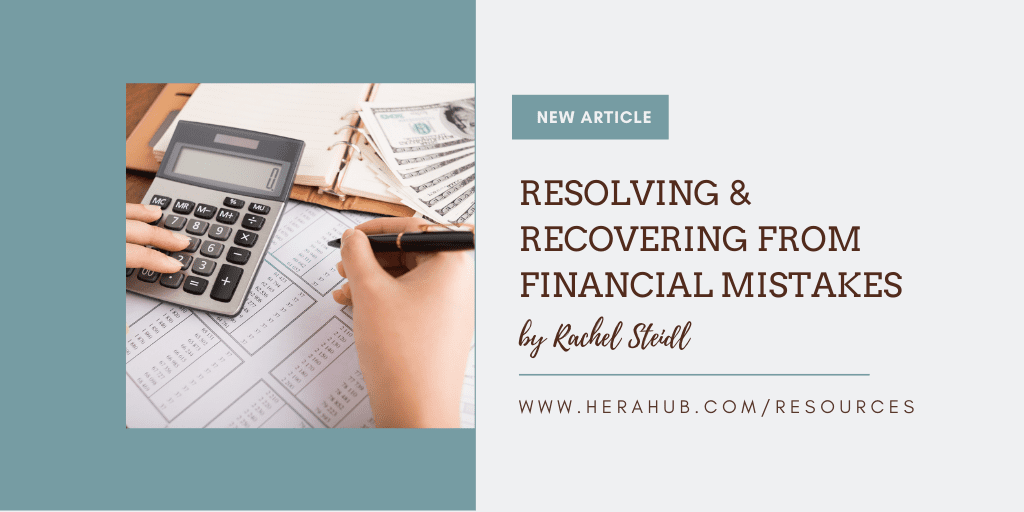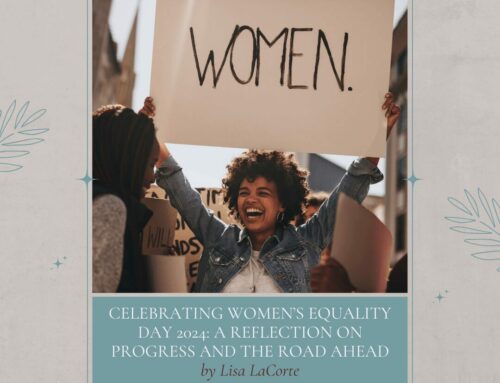
Sometimes people think that because I offer financial coaching and education that I never make mistakes with my own money. I’m human too, and I’ve made my share of blunders. Actually, making financial mistakes has been invaluable to me because I’ve learned things I would have never learned had I not made any missteps. I’ve also learned that once the mistake occurs, the most important factor is how I respond to it. I’ll give you an example of how I resolved a recent financial misstep, then provide you with some steps you can take to better manage and learn from your money mistakes.
 At the end of 2020, I was glancing at my credit card charges and noticed two charges I didn’t remember making that totaled over $300. At first, I thought they were fraudulent charges I should report to my credit card company. I thought a bit more and then remembered they were auto-renewals from website services that I didn’t end up using. The old me would have freaked out in this moment and shamed myself. The new me had a 2-second freak out and then set out to cancel those accounts. What helped is reminding myself what I could control. I knew they may not give me my money back, and it would only hurt me to stew over it. This made it easier for me to complete the cancelations. The good news is that I got over 90% of my money back and now set reminders for when any auto-renewal is due. Even though this mistake cost me $25, the pride of realizing how calmly I remedied the situation made it worth it.
At the end of 2020, I was glancing at my credit card charges and noticed two charges I didn’t remember making that totaled over $300. At first, I thought they were fraudulent charges I should report to my credit card company. I thought a bit more and then remembered they were auto-renewals from website services that I didn’t end up using. The old me would have freaked out in this moment and shamed myself. The new me had a 2-second freak out and then set out to cancel those accounts. What helped is reminding myself what I could control. I knew they may not give me my money back, and it would only hurt me to stew over it. This made it easier for me to complete the cancelations. The good news is that I got over 90% of my money back and now set reminders for when any auto-renewal is due. Even though this mistake cost me $25, the pride of realizing how calmly I remedied the situation made it worth it.
So how can you better handle the financial mistakes that arise? Here are some ideas:
- Focus on what you can control.
- If you’re tempted to shame yourself, remember that you’re human, and we make mistakes. If that doesn’t help, ask yourself if you would say those same things to a friend if they made the same mistake.
-
- Not everyone is going to know the answer or will be the right person to talk to. If someone is shaming you when you’re looking to solve the problem, then move on to someone else. You don’t need that negativity bringing you down.
- If you don’t know anyone who can help you resolve your issue, ask others if they can refer you to someone who does. Ask for help if needed. This applies whether you need help to resolve the actual problem itself or need help from someone to help you stop shaming yourself.
Once the problem is solved, the work isn’t over. Reflection can help you grow. Here’s what you should do and why.
- Review your mistake and what led to it. Use these insights to see if you can put processes or safeguards into place to keep it from happening again.
- Make note of how you emotionally handled the situation.
- If you think you handled yourself pretty well, reflect on how it helped you better get through the situation so you can remember it for future situations.
- If you recognize that you let your emotions get the best of you, reflect on how that hurt you and if that impacted how and when the resolution occurred.
If you’re not used to resolving money mistakes this way, give yourself some time. I can tell you from personal experience that the more you practice this, the better you’ll be able to emotionally handle these situations. Then one day, you might just impress yourself by how well you resolved a very human, financial mistake.
 Rachel Steidl is a Financial Coach & Educator who is on a mission to help people (especially women) become financially empowered and stable. Her former career was in the behavioral health field, but she found herself at a crossroads ready for a new challenge. After connecting with way too many intelligent people who struggled with their finances, she decided to make it her mission to help others take control of their financial lives. She now has happily has combined her two passions (finance and mental health/wellness) to help people learn the financial skills, habits, knowledge, and confidence they need to build the life they want. Rachel has Masters of Public Health and Bachelor of Arts in Psychology degrees from the University of Wisconsin-Madison and is also a Certified Financial Education Instructor.
Rachel Steidl is a Financial Coach & Educator who is on a mission to help people (especially women) become financially empowered and stable. Her former career was in the behavioral health field, but she found herself at a crossroads ready for a new challenge. After connecting with way too many intelligent people who struggled with their finances, she decided to make it her mission to help others take control of their financial lives. She now has happily has combined her two passions (finance and mental health/wellness) to help people learn the financial skills, habits, knowledge, and confidence they need to build the life they want. Rachel has Masters of Public Health and Bachelor of Arts in Psychology degrees from the University of Wisconsin-Madison and is also a Certified Financial Education Instructor.





